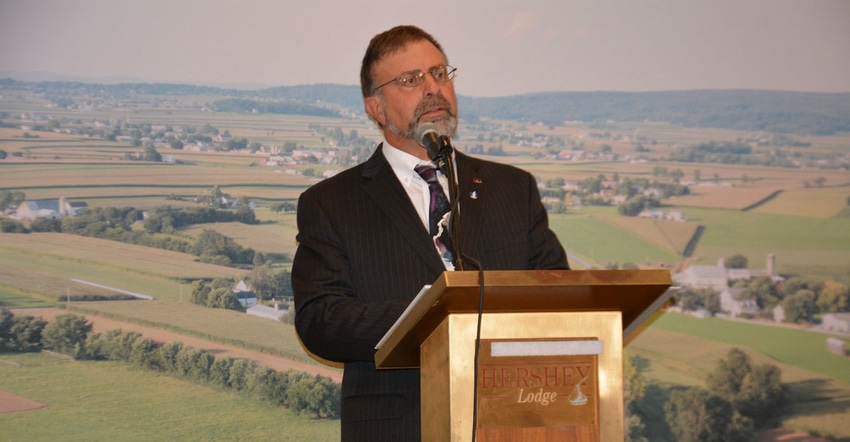November 25, 2019

I’ll be spending Thanksgiving at my father-in-law’s farm, and I know the discussion will come up: “Look at the warehouse and how quickly it’s being built.”
It’s only a half-mile away from the farm and visible for us to look at with disgust. The previous owners didn’t want to farm anymore, and their children weren’t interested in farming either.
It’s no surprise, though. Farming is a tough business, and it’s not for everyone.
Dairy farmers especially have it tough. Remember the days when consultants said that robotic milkers were the savior of dairy farms? Right down the street from my father-in-law’s place is a modern dairy farm with four robotic milkers, and it’s for sale.
The owner wants to get out of the business and doesn’t have children who want to take over. Quite simply, he’s tired of the business. I hope someone comes around and buys the place. I don’t think I want see another warehouse pop up, even if it’s down the street from a major highway.
From specialty to diversity
In the words of the famous singer Bob Dylan, “The times they are a changin.’” Farmers in the Mid-Atlantic and Northeast face tough realities: The land mass and topography are not ideal for large-scale farming; the infrastructure isn’t here to support it; farmers are getting older; and unless there are children waiting in the wings to take over, land is too expensive for young people to get into the business. Oh, and by the way, a lot of people live close to farms, which leads to tougher — and sometime onerous — regulations that make it hard for farmers to make a living.
None of this is really news; farmers have been hearing about this for years. But I think it was telling that Pennsylvania Farm Bureau focused on this during its annual meeting.
“For a lot of years, we were encouraged by consultants, and economists … encouraged us to specialize on the farm, and that’s what we did,” Rick Ebert, Pennsylvania Farm Bureau president, said at a press conference.
His specialization has been dairy, but with his two sons ready to take over the business, Rick says they want to diversify away from cows. One of his sons now raises 120 ewes on the farm while another wants to tap a potentially lucrative market for vegetables to local restaurants. They’re building a high tunnel on the farm to start producing.
“So, that’s what the face of changing agriculture is. When you look at the changing demographics, we can’t put 5,000-cow and 10,000-cow dairies in Pennsylvania,” he says. “We don’t have the infrastructure, we don’t have the land base to support those kinds of industries.”
Farm Bureau’s moves to help ag
Instead, Farm Bureau is focusing on agritourism bills that would improve liability protections for farmers who want to start an agritourism operation.
It’s also advocating for bills that would change the state’s building codes to make it easier and less expensive for farmers to retrofit a barn to be a wedding facility. It takes a lot of money to transform a barn into a wedding facility, and strict building codes likely make it more expensive to do so.
I applaud Farm Bureau for pushing these sorts of bills. Clearly, it’s come to the realization that things are changing, and farmers are diversifying.
But what do you think? Are we truly heading into a new reality, where dairy farming — once the face of Pennsylvania and Northeast agriculture — will drift into the background as just one small piece of the overall farming pie?
I love feedback, so send me some comments at [email protected].
You May Also Like




